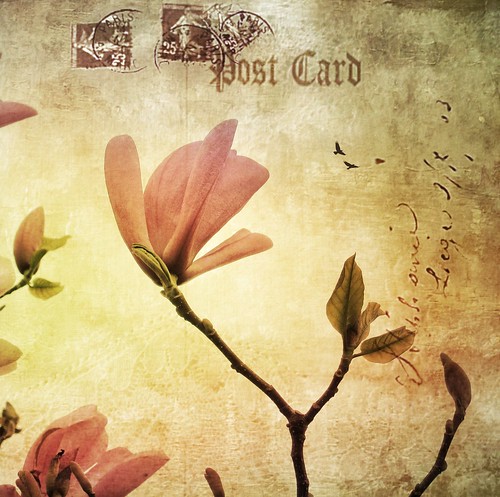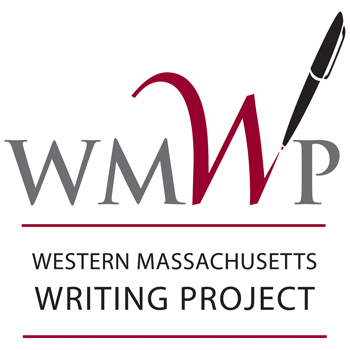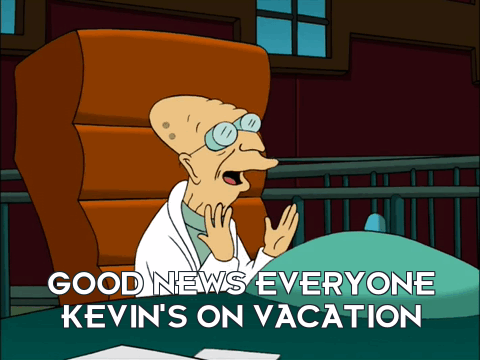This is the latest in short audio reflective posts I have been making periodically since the Pandemic hit in March. This one follows a decision about re-opening by our School Committee.
Others in the series:
Peace (and safety),
Kevin

Words, like nature, half reveal and half conceal the soul within…. Alfred Lord Tennyson flickr photo by Nick Kenrick.. shared under a Creative Commons (BY-NC-SA) license
I wrote this poem for the #ds106 Daily Create, which asked about unusual food combinations, and I went with words instead …
Chewing on words
a poem’s rough edges
cuts the tongue, barbed
irony abounds, jagged with
reminders to go slow or
pay the pricethe script informs
how one must speak the words
dense, disturbed, distant,
a mixed emotional concoction
of removalthis prose tastes abandoned,
a story from one age eaten
more than morsel, if one cuts
the edges off to find the center
often hiddenSwallowing these lines
Peace (and poems),
Kevin
I read and recommended this small but important book near the start of this lunacy/presidency and I have pulled it out to re-read (yet again) and recommend (yet again) at what I hope is the nearing end times of this lunacy/presidency.
I’ve sent this book as gifts to friends and family. I still highly recommend it. What’s happening in Portland and other cities with federal agents is another resonation of Snyder’s points here — that government tyranny happens slowly and then quickly, and it must be combatted at every turn.
Remember to vote.
Peace (fight for it),
Kevin
 I’ve written many times in this space and others about my first year of teaching – 19 years ago — when the Western Massachusetts Writing Project was a necessary lifeline of sorts, providing me with mentor teachers and ideas for engaging students through writing, and more.
I’ve written many times in this space and others about my first year of teaching – 19 years ago — when the Western Massachusetts Writing Project was a necessary lifeline of sorts, providing me with mentor teachers and ideas for engaging students through writing, and more.
My participation in our Summer Institute my first summer after my first year led to me being invited to an increased role in the writing project site, and then through my interest in technology and the classroom, to rich opportunities within the National Writing Project (connections that remain to this day) that have included CLMOOC and WriteOut and more.
I spent many of my years on the WMWP Leadership Team, mostly as the technology liaison and then as the co-director for technology, and finally, for the last few years, I took on the role of the co-director of outreach, allowing me to oversee initiatives like social media and partnerships with local news organizations to feature our teachers as writers.
Last month, after a year of transition with an incoming co-director of outreach (Samantha Briggs), I stepped away from the WMWP leadership team. This is all planned and part of the leadership structure of WMWP — intentional transitioning to bring in new people as leaders (like Samantha). Although it feels strange to not call myself a co-director of the Western Massachusetts Writing Project anymore, it also feels a bit freeing. This morning, I started to edit my online profiles, changing my status back to “teacher consultant” and not “co-director of outreach.”
I’m still involved with WMWP, of course, and I continue to facilitate a partnership with the Springfield Armory National Historic Site and will be involved in youth writing programs and teacher outreach, and more through a larger network partnership between the National Writing Project and the National Park Service. I also aim, after a breather of time, to offer to be part of the WMWP Technology Team again, but as a member and not the leader (that would be Tom Fanning, who replaced me for that position, as planned).
WMWP has long been my home as a teacher, and remains so. I value my writing project colleagues and the programs and support it offers, and the vision for how best to support teachers and students through opportunities and meaningful professional development. WMWP is still my home, even as my role shifts a bit.
Peace (in transition),
Kevin
These are now part of the collection of Pandemic Comics that I started way back in March.
Peace (stay safe),
Kevin

I’ve been enjoying the monthly poetry writing at Ethical ELA’s 5-Day Open Write project — mainly because it comes in five-day bursts, only once a month. A morning email update reminds me to write there. But I also appreciate it because the site is a lively writing community. There’s a lot of writing posted but also a lot of feedback and discussion threads, all spurred on by poetry.
This month of July, the five days of prompts were built around specific forms of poetry. I am a free-verse poet, for the most part, so it was a challenge. But again, it was interesting and fun, and forced me to slow down with my writing (and break the rules when I needed).
Here are my five poems:
Day One: Rondeau
Someone wrapped me up in Rondeau
Told me the rules, then let me go
But I’m not a poet like that
I see a rule; I break it, for laughs
Add a syllable or a line to the old weathered crow
and return to the rhyme when I want, like so
But now I think maybe I know
the path these words of poem must flow
I start at the top and end, last;
Words in motion
For what is a poem but a show
walker on wire; fallen domino;
or a rabbit pulled from a hat
form and function and all of that
I push myself in, take it slow,
consider constraints, let go;
Words in motion
Day Two: Ode
Ode to an Empty School Hallway
Hallway, I still remember you
as you left me, as I left you,
all bustle and chatter, and
dropped books and erasers,
my door opening into shared space
on the lost Friday afternoon
Oh, Hallway, how much silence
you have swallowed, since
then, since March, when the last of
the metal doors slammed shut;
there’s something close to sound
still reverberating
They tell me they’ve adorned you
with arrows, directions, paths,
signs for our feet to follow,
movement we must take,
and in my mind, at times,
we’re all masked wanderers now,
anxious passengers
on a train with walls barren of art
Hallway, someday, you will shout
again, and I promise to stand
at the end, like a fly on the telescope,
yelling one thing but holding the other;
my heart remembers
Day Three: Ghazal
Pareidolia
Power switch conductor brings me ’round,
I’m awake again, midnight listening in surround sound
to music from the window fan, such noise
in the soft signal of deep summer, around sound
like faint music, and if this were the wire,
the Net, the stream, the dream, what found sound
would you be, in the night, with me
as my mind’s making melody, unbound sound
Day Four: Monotetra
It’s not too much, unions demand,
to review options in the plan,
even if we don’t understand
the twist turns of this fragile land
I am ready/ I’m not ready
of masking up, of space between,
of anxious teachers, broken dreams,
of quiet fret; we’re not machines;
the unknown becoming routine
I am ready/ I’m not ready
Day Five: Praise
All praise
to the shortened pencil,
the powerless point
with which to write,
scratching small poems and
stories, essays and plays,
sticking words on white
All praise
to the worn eraser,
telling time of thoughts,
such lost angles and false
prophets of ideas, shifting
compass of directions;
reconvene, writer, when lost
All praise
to the empty page,
playground of the possible,
and pause before its wonder,
for where nothing was
now something is,
move the rock to find what’s under
Peace (flows through poems),
Kevin
 WMWP Summer Youth Writing Program 2020: Interactive Fiction
WMWP Summer Youth Writing Program 2020: Interactive FictionSome observations and reflections
https://sites.google.com/view/interactivefiction/home
Positives of shift to online
Challenges of shift to online
What I’d Do Different
Typical Day Format
Peace (reflecting to remember),
Kevin
 Last week, I was immersed in an online summer youth writing program for middle school writers through the Western Massachusetts Writing Project. My topic: Interactive Fiction (with a focus on ‘choose your own ending’ formats). I had 12 young writers with me on a daily journey via Zoom of writing, exploring, creating and sharing.
Last week, I was immersed in an online summer youth writing program for middle school writers through the Western Massachusetts Writing Project. My topic: Interactive Fiction (with a focus on ‘choose your own ending’ formats). I had 12 young writers with me on a daily journey via Zoom of writing, exploring, creating and sharing.
I created this online resource site with tutorials on the three main platforms that we used: Inklewriter, Twine and Google Slides. There are also some student examples at the top. Feel free to use and share anything that might be helpful. I’ll share out some reflections of running an online summer writing program in a few days.
I’d also like to give a huge shout-out to my thinking partner on designing this online program (an offshoot of a project I do in the classroom with my own students ) to Bryan Coyle, a teacher-consultant with the Minnesota Writing Project.
I had learned through the National Writing Project network (via Twitter) that Bryan was also doing an Interactive Fiction summer program, in the weeks before me, and so he and I chatted via email about program design. Bryan was so generous in sharing his resources, and I was able to adapt some of his work for my own program. He also wrote me a lengthy email after his program ended, reflecting on what worked for him and what didn’t, offering advice on how to proceed in an online environment with young writers one has never met. I am most grateful for the connection.
Peace (make a choice),
Kevin

I am going away for a few days with friends and I could use a little blogging downtime anyway, so I won’t be doing any writing here for most of July. I’ll probably be poking around the Interwebz here and there (mostly doing the Daily Creates with DS106). Thanks for visiting.
Peace (and rest and rejuvenation),
Kevin